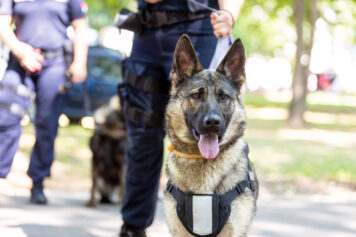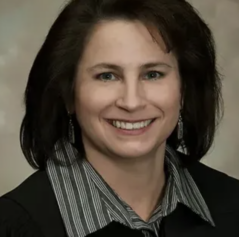An anonymous grand juror in the Breonna Taylor case wants to come forward, and now his attorney is hitting back at Kentucky Attorney General David Cameron’s latest maneuver to try to prevent him from speaking out about what happened when Cameron presented the case to the grand jury.
On Friday, Oct. 9, Cameron filed a motion to delay any order that would allow grand jurors to speak about what happened over the two and a half days when prosecutors presented the case of Louisville Metro Police Department officers Sgt. Jon Mattingly, Detective Myles Cosgrove, and Detective Brett Hankison to the grand juror for possible bills of indictment in the death of Taylor. A judge is still considering the anonymous grand juror’s Sept. 28 motion to be allowed to speak about the proceedings, and Cameron’s motion from Friday would prevent an order in favor of the grand juror from taking effect while Cameron appeals it.
Two days later, the grand juror’s attorney, Kevin Glogower, filed a motion to dismiss Cameron’s silence-in-advance motion from Friday. Glogower’s filing further chastised Cameron’s attempt to silence his client, contending that Cameron’s decision to permit the release of 15 hours of grand jury recordings along with his own personal statements about the proceedings, had rendered the action useless.
“Anonymous Grand Juror #1 submits the Attorney General cannot choose to part from the rules in disclosing information and then use his position to prevent others from responding to his misleading remarks,” Glogower said in his filing, per the New York Daily News.
The client was worried about issues concerning responsibility and ambiguity and asked to speak out, Glogower said.
“The grand juror we represent felt compelled to take some sort of an action based upon the indictment rendered and the subsequent press conference from the AG’s office about out how everything played out,” said Glogower at a press conference last week. “But before our client can discuss these things freely, they needed to know the rights and duties as deemed by the court.”
According to Cameron, honoring the grand juror’s request would infringe on “centuries of history, practice, and custom” that are direct about the secrecy of grand jury proceedings. The Attorney General’s Office also inquired about enacting a stay of any court order that grants the juror permission to speak publicly pending a potential state appeal.
In response, Glogower wrote, “Perhaps it is lost on the Commonwealth that over the same centuries other practices, customs, and traditions have been done away with or fundamentally changed. Over that time period, slavery has been abolished, women have been given the right to vote and same sex marriage has been legally recognized to name a few.”
In his filing, the lawyer said issues concerning sketches and the no-knock warrant were not properly handled and he challenged the statement that grand jurors “have the knowledge base to draft” an “indictment for charges other than those specifically presented by prosecutors.”
Glogower also condemned Cameron’s statements to the media that the grand jury had the choice to “steer the conversation in a different direction” during the course of the presentation.
“The grand jury inquired about additional body cam footage only to be told they did not have enough time to watch them,” he wrote.
Cameron faced additional heat from Glogower for his comments on the “Larry Glover Live” radio show in Lexington during which he said his team “explained the justification” for grand jurors to charge the officers with wanton endangerment for the shooting. Hankison, who was indicted for wanton endangerment, is the only officer charged in the case.
The failure to indict any of the three officers for homicide in the March 13 slaying of the 26-year-old EMT during a botched drug raid in her Louisville apartment has infuriated observers nationwide.
The judge considering grand juror’s original request could rule soon, meaning the public could learn more about why no homicide indictments were handed down against the officers.

